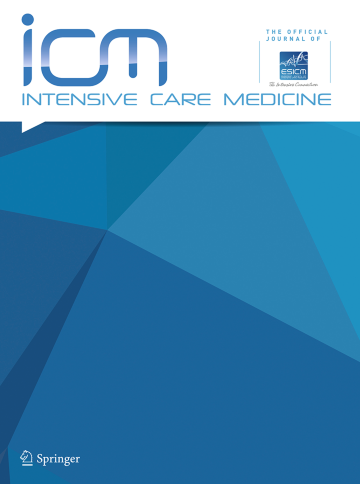在重症监护病房失去一位重要的成年人期间为儿童提供支持
IF 27.1
1区 医学
Q1 CRITICAL CARE MEDICINE
引用次数: 0
摘要
在重症监护病房(ICU)环境中管理重症患者对重症监护临床医生来说是一项挑战,他们往往必须平衡治疗重症患者的需求,同时也要为家庭成员提供支持。以家庭为中心的护理实践与家庭的丧亲需求密切相关,因为在ICU中,支持性、包容性和沟通性的方法可以显著影响悲伤过程,并对家庭症状产生影响。在ICU环境中,通常照顾成人患者,在ICU中照顾失去亲人的孩子可能会特别紧张。虽然ICU以家庭为中心的护理实践在全球范围内得到了很好的支持,但解决儿童独特的丧亲需求可能会导致ICU临床医生在如何最好地提供支持方面存在不确定性。虽然现有的指导方针支持临床医生提高临终和死亡的质量,最大限度地减少对家庭的不良影响,并作为医院管理者和医疗保健政策制定者的资源[10],但关于如何在成人ICU中最好地提供以儿童为中心的丧亲支持存在不确定性。这表明有必要优先研究丧亲儿童、护理人员和ICU的卫生保健提供者,以建立证据并制定有针对性的干预措施[10]。本文章由计算机程序翻译,如有差异,请以英文原文为准。
Providing support to children during the loss of an important adult in the ICU
Managing critically ill patients in the intensive care unit (ICU) setting is challenging for critical care clinicians, who often have to balance the demands of treating acutely ill patients, while also providing support to family members. Family-centered care practice and bereavement needs of the family are closely related as a supportive, inclusive, and communicative approach in the ICU can significantly influence the grieving process, and the impact on family symptoms [1]. In ICU settings that typically care for adult patients, caring for a bereaved child in the ICU can be especially stressful. While family-centered care practice in the ICU is globally well supported [2], addressing the unique bereavement needs of children can lead to uncertainty among ICU clinicians as to how to best provide support. Although guidelines exist to support clinicians to improve quality of dying and death, minimize the adverse effects of the experience on families, and serve as a resource for hospital administrators and healthcare policymakers [3], uncertainty exists as to how to best provide child-centered bereavement support in an adult ICU. This shows the necessity of prioritizing research on the bereaved children, caregivers, and health care providers in the ICU, to build up evidence and develop targeted interventions [4].
求助全文
通过发布文献求助,成功后即可免费获取论文全文。
去求助
来源期刊

Intensive Care Medicine
医学-危重病医学
CiteScore
51.50
自引率
2.80%
发文量
326
审稿时长
1 months
期刊介绍:
Intensive Care Medicine is the premier publication platform fostering the communication and exchange of cutting-edge research and ideas within the field of intensive care medicine on a comprehensive scale. Catering to professionals involved in intensive medical care, including intensivists, medical specialists, nurses, and other healthcare professionals, ICM stands as the official journal of The European Society of Intensive Care Medicine. ICM is dedicated to advancing the understanding and practice of intensive care medicine among professionals in Europe and beyond. The journal provides a robust platform for disseminating current research findings and innovative ideas in intensive care medicine. Content published in Intensive Care Medicine encompasses a wide range, including review articles, original research papers, letters, reviews, debates, and more.
 求助内容:
求助内容: 应助结果提醒方式:
应助结果提醒方式:


